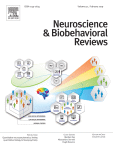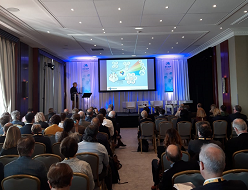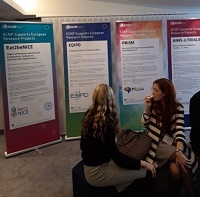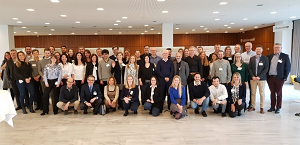|
|
Neuroscience & Biobehavioral Reviews, Special PRISM issue
 |
The PRISM project has taken a significant step forward with the publication of 13 articles in a special edition of Neuroscience & Behavioural Reviews.
The articles represent a peer-reviewed road map for the project, setting out the philosophical rationale, biological background, and a carefully designed research plan.
In an accompanying press release, PRISM project co-ordinator, Professor Martien Kas (University of Groningen) said: |
“The PRISM project is a completely new way of approaching mental health and neurological problems. This series of publications marks the setting out of the first really structured programme to address quantitative biology across mental illness and neurodegenerative diseases…. What we have done is to set out the parameters which we will use to quantify disease characteristics and identify diagnostic biomarkers for common social and cognitive deficits in Alzheimer’s disease and Schizophrenia. These biomarkers should eventually give us a structured neurobiological understanding of what causes these conditions, which may also allow us to take steps to prevent these problems”.
The editors of the special edition add, “The project paves the way into a paradigm shift for drug discovery and development in neuropsychiatry and has the potential to serve as a role model for RDoC guided approaches, including their rapid take-up and acceptance by the scientific community”.
Guest editors:
Martien Kas (University of Groningen, Groningen, The Netherlands), Managing editor Hugh Marston (Eli Lilly & Company, Windlesham, UK), Alessandro Serretti (University of Bologna, Bologna, Italy)
1. Editorial: Quantitative neurosymptomatics; linking quantitative biology to neuropsychiatry M Kas et al
2. A quantitative approach to neurosymptomatics: the why and the how M Kas et al
3. Social brain, social dysfunction and social withdrawal S Porcelli et al
4. Commentary: The PRISM project: Social withdrawal from an RDoC perspective B Cuthbert (NIMH)
5. Working definitions, subjective and objective assessments and experimental paradigms in a study exploring social withdrawal in schizophrenia and Alzheimer's disease N van der Wee et al
6. Relating constructs of attention and working memory to social withdrawal in Alzheimer's disease and schizophrenia: issues regarding paradigm selection. G Gilmour et al
7. Electrophysiological assessment methodology of sensory processing dysfunction in schizophrenia and dementia of the Alzheimer type P Danjou et al
8. Commentary: Social withdrawal as psychopathology of mental disorders W T Carpenter
9. Overview of the clinical implementation of a study exploring social withdrawal in patients with schizophrenia and Alzheimer’s disease Amy Bilderbeck et al
10. Commentary: A regulatory view on novel methodologies and context of use of biomarkers Maria Tome et al
11. The reverse translation of a quantitative neuropsychiatric framework into preclinical studies: Focus on social interaction and behavior B Hengerer et al
12. Disturbances of sleep quality, timing and structure and their relationship with other neuropsychiatric symptoms in Alzheimer's disease and schizophrenia: Insights from studies in patient populations and animal models Winsky-Sommerer et al
13. Multisensory cortical processing and dysfunction across the neuropsychiatric spectrum Hornix et al
The special edition can be seen online here.
|
|
|
Latest results presented in Nice
Martien Kas, co-ordinator of the PRISM project, presented the latest results at the ECNP New Frontiers Meeting in Digital Health, on 10-11 March, in Nice, France. This year’s New Frontiers Meeting meeting was dedicated to the role of digital medicine in therapy development for brain disorders. The meeting was attended by 100 representatives from IT, pharma and medical devices industry, regulators, and patient and family associations.

|
|
|
PRISM and young researchers
The PRISM project was promoted among junior researchers during the ECNP Workshop for Early Career Scientists, which took place on 7-10 March 2019 in Nice, France. Participants and speakers came from across Europe and North America. An explanatory banner was displayed at the meeting together with an interactive digital information terminal, so delegates could read further about the project and send questions and comments to the project co-ordinators.
After the great visibility reached at this Workshop, the successful formula was repeated at the ECNP New Frontiers Meeting in Digital Health (10-11 March), also in Nice.

|
|
|
General Assembly at Roche
Last February the complete consortium gathered at F. Hoffmann-La Roche headquarters in Basel, Switzerland, for its annual General Assembly (7-8 February). Highlights of the last year were presented by the co-ordination team followed by the host, Anke Post, Roche, one of the PRISM partners, who told us about Roche and the city of Basel.
The two-day meeting gave the opportunity to the work package leaders to discuss progress so far, present key outcomes and share their future plans. The meeting also hosted the second poster sessions during the break, showcasing some of the project’s increasing body of scientific achievements.

|
|
|
|
|
|